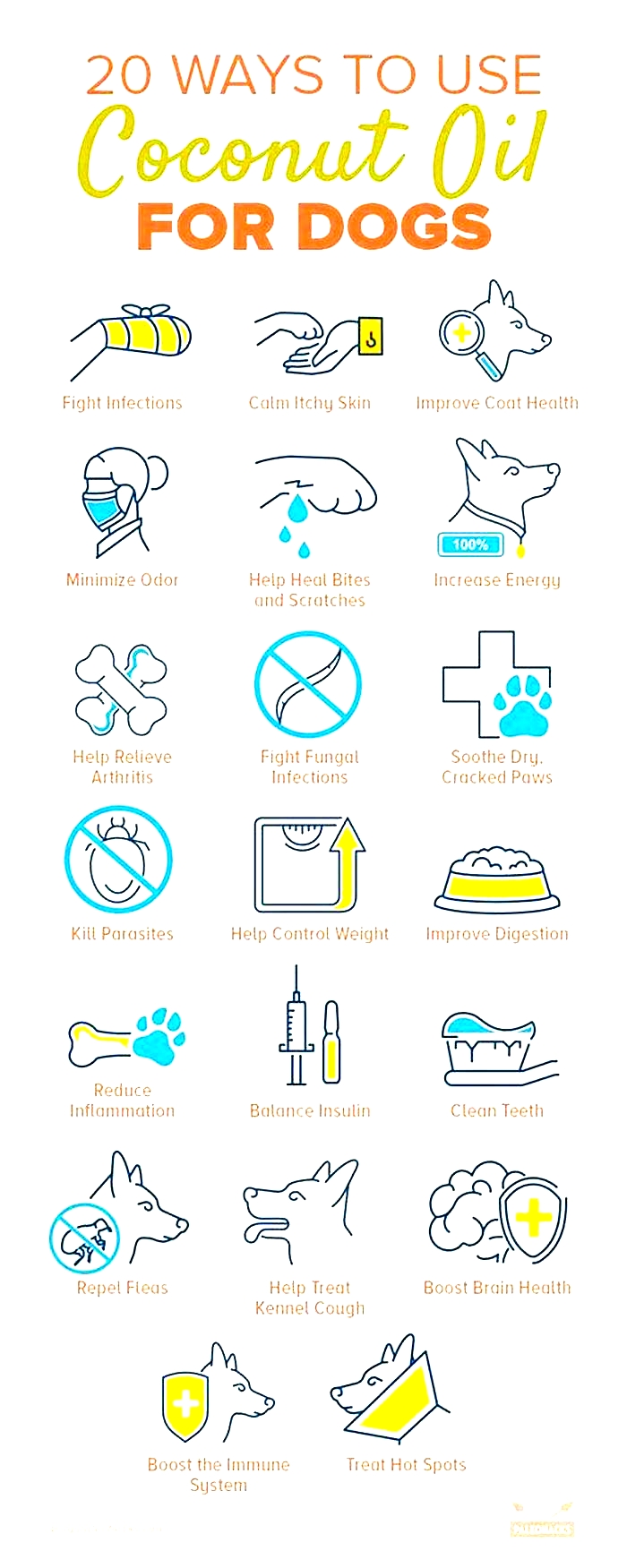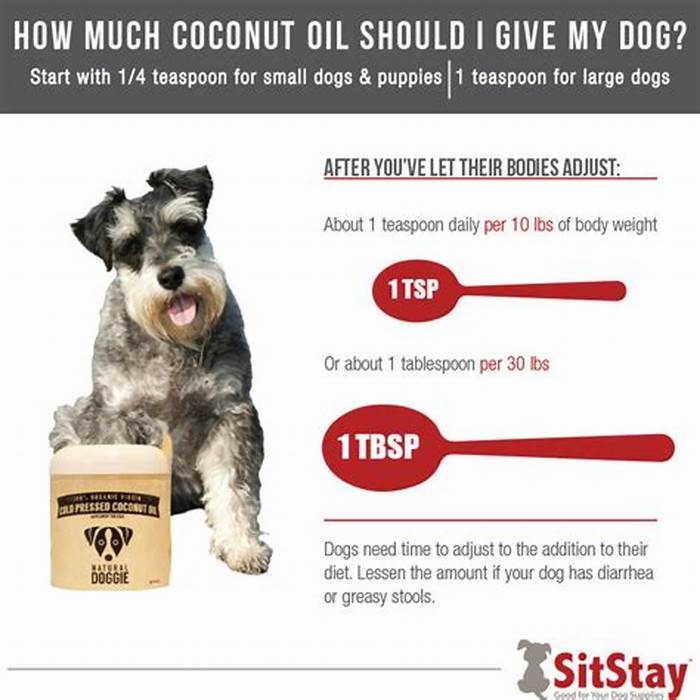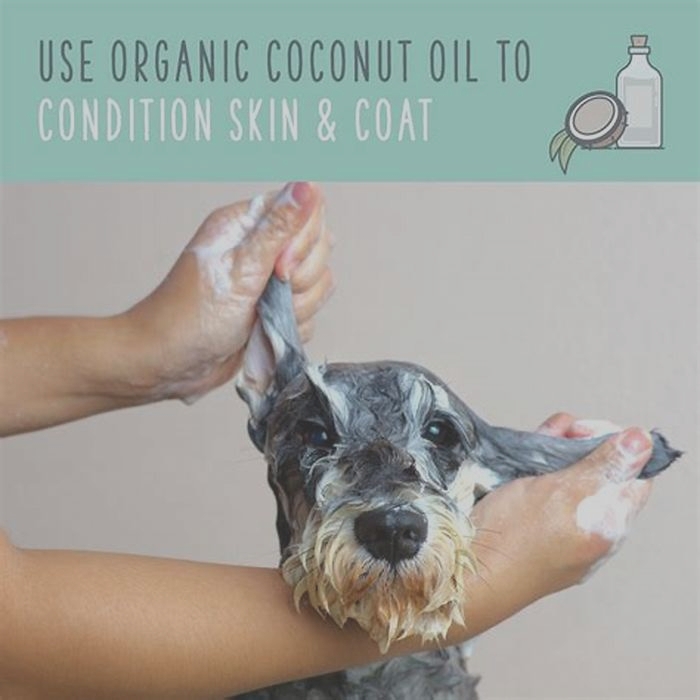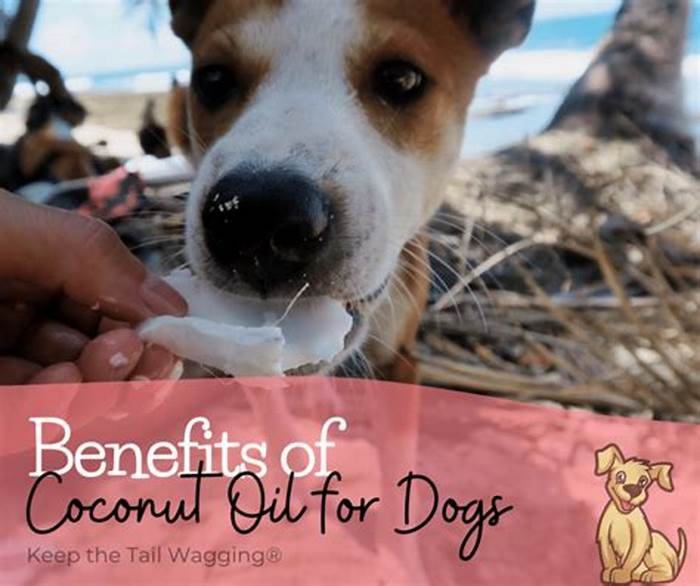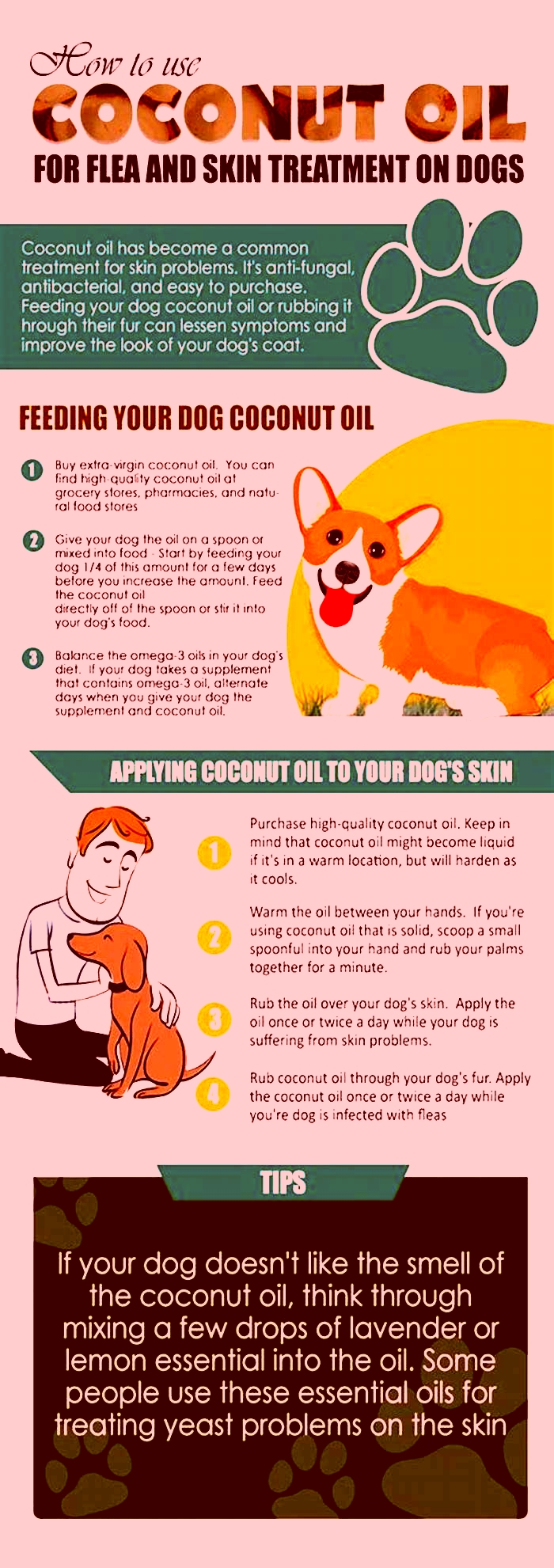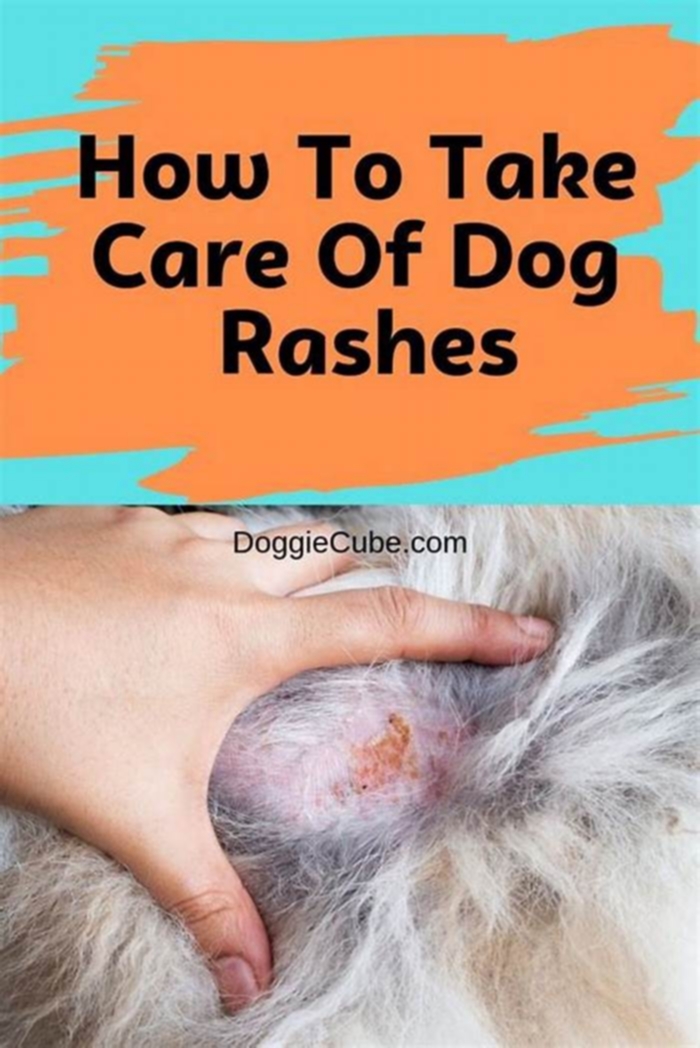Can I give my dog coconut oil
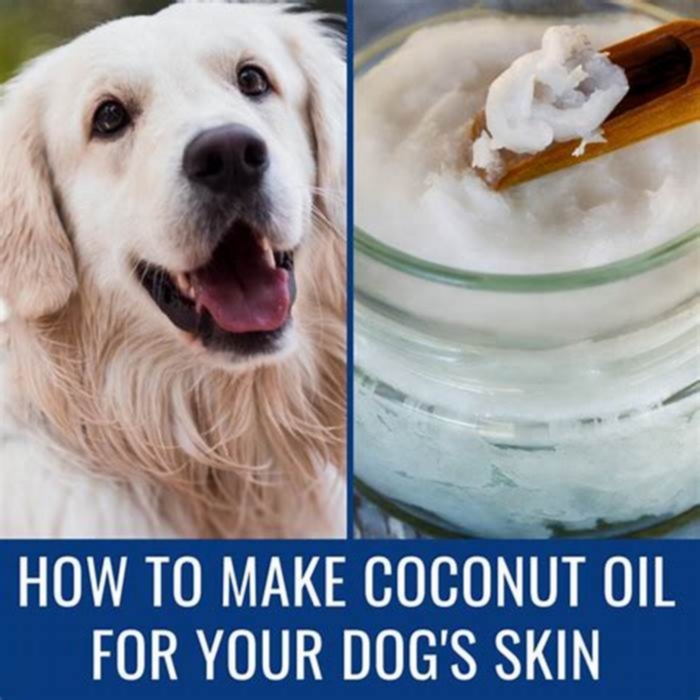
Coconut Oil for Dogs
Coconut oil has become quite the craze in recent years as a popular supplement for people, touted for a wide variety of possible benefits. Coconut oil can be consumed orally, directly placed on food, applied to the skin topically, or contained in supplement form.
But is it also OK to give coconut oil to dogs?
While in very small amounts coconut oil is not likely to cause an issue for your dog, regular use in dogs is not recommended.
Key Takeaways
- Regular use of coconut oil in dogs is not recommended.
- Always consult with a veterinarian before adding coconut oil to your dogs routine.
- While coconut oil offers potential benefits for dogs, it also poses risks such as stomach upset, pancreatitis, and allergic reactions.
What Is Coconut Oil?
Coconut oil comes from the white flesh of the coconut fruit, part of the coconut palm tree. This oil is extracted and is categorized into two typesrefined coconut oil and unrefined coconut oil.
Unrefined coconut oil, sometimes called virgin coconut oil, is minimally processed and retains its flavor; the meat of the coconut is pressed to produce the oil. Refined coconut oil has only a mild flavor but can be used at high temperatures, such as when used for cooking. These oils are then made into preparations for the skin or for oral ingestion.
Is Coconut Oil Safe for Dogs?
In small quantities, coconut oil can be given to dogs for a variety of reasons, but mainly for its medium-chain triglycerides (MCTs) as a source of saturated fat, also known as the good fat.
MCTs are also found in dairy products and palm oil. Coconut oil should be given under the guidance of your veterinarian and gradually introduced into your pups diet. Too much too fast can cause significant stomach upset, and a little bit goes a long way. As with any food, watch for signs of an allergic reaction such as hives or itchy skin.
Coconut oil can be given to dogs in pure form, added to the food or as an oral supplement. It can also be made into a topical preparation for skin issues.
Cold water fish oils provide an excellent source of omega-3 fatty acids. Their propensity to cause stomach upset in dogs is also a lot lower than that of coconut oil.
Can You Use Coconut Oil for a Dogs Skin?
Veterinarians typically do not recommend using coconut oil for your dogs skin because the risk often outweighs the benefits.
Coconut oil is often used to hydrate a dogs skin, reduce inflammation, and provide both antibacterial and antifungal properties. However, this remains anecdotal in dogs.
While there are studies in people, there is no scientific evidence supporting the benefits of coconut oil for use on dog skin.
Applying anything to a dogs skin should be done with caution, as dogs tend to lick themselves often and will ingest the substances.
While coconut oil can be ingested, if too much is ingested or its in a form that is not meant to be ingested, significant stomach upset and pancreatitis will develop. Coconut oil applied to the skin can also cause an allergic reaction, making any current skin condition or itching worse.
Can You Use Coconut Oil for a Constipated Dog?
Coconut oil is not helpful for dogs with constipation, as large quantities ingested will cause painful stomach upset and pancreatitis. Even in small quantities, this painful condition can still occur, along with a possible allergic reaction.
In humans, coconut oil is used because MCTs are more easily digested than long-chain fatty acids (LCTs) to help with conditions that cause decreased absorption or maldigestion of fats. Coconut oil is rapidly absorbed by the intestinal tract; therefore, it will not be effective as a laxative in constipated dogs.
Benefits of Coconut Oil for Dogs
Some possible benefits of using coconut oil in dogs are extrapolated from its successful use in humans. They are:
Rich in fatty acids (MCTs)
Lowers cholesterol
Reduces inflammation
Exhibits antibacterial, antifungal, and antiviral properties
Acts as an antioxidant
Aids digestion
Supports heart and brain function
Assists with inflammatory bowel disease (IBD) by reducing gut inflammation
Aids cognitive function
Decreases seizure activity in epileptic dogs
Claims of use in dogs that lack credible studies, even in people, include:
Risks of Coconut Oil for Dogs
Using coconut oil on dogs, whether through ingestion or topical use, carries the following risks to their health:
While coconut oil offers potential benefits for dogs, including skin health, digestion support, and support for other organ functions, it also poses risks such as stomach upset, pancreatitis, and allergic reactions.
Always consult with a veterinarian before adding coconut oil to your dogs routine, to ensure its appropriateness for their individual health needs.
WRITTEN BY
Barri J. Morrison, DVMVeterinarian
Barri Morrison was born and raised and currently resides in Ft. Lauderdale, Florida. She went to University of Florida for her...
How To Give Dogs Coconut Oil
[ad_1]Coconut oil has been gaining popularity as a natural supplement for dogs due to its numerous health benefits. From improving skin and coat health to boosting immunity, coconut oil can be a great addition to your furry friends diet. However, giving dogs coconut oil can be a bit tricky if youre not sure how to do it properly. In this article, we will discuss how to give dogs coconut oil, along with some interesting trends, common concerns, and answers related to the topic.
**How To Give Dogs Coconut Oil**
1. Start Small: When introducing coconut oil to your dogs diet, its important to start with a small amount and gradually increase the dosage. This will help prevent any digestive issues that may arise from a sudden change in diet.
2. Mix with Food: One of the easiest ways to give dogs coconut oil is to mix it with their regular food. This can help mask the taste and make it more appealing to your pup.
3. Use as a Topical Treatment: Coconut oil can also be applied topically to your dogs skin and coat to help moisturize and soothe dry, itchy skin. Simply rub a small amount onto your dogs skin or coat and massage it in gently.
4. Monitor for Allergies: While coconut oil is generally safe for dogs, some may be allergic to it. Keep an eye out for any signs of an allergic reaction, such as itching, redness, or swelling, and discontinue use if necessary.
5. Consult with a Veterinarian: If youre unsure about how much coconut oil to give your dog or if its safe for them to consume, its always best to consult with a veterinarian. They can provide personalized advice based on your dogs specific needs.
6. Consider the Source: When purchasing coconut oil for your dog, opt for organic, cold-pressed, unrefined coconut oil. This will ensure that the oil is of the highest quality and free from any harmful additives.
7. Be Consistent: To reap the full benefits of coconut oil for your dog, its important to be consistent with its use. Incorporate it into their daily routine to see the best results.
**Interesting Trends**
1. Coconut Oil as a Superfood: Coconut oil has been hailed as a superfood for dogs due to its high levels of lauric acid, which can help boost immunity and fight off bacteria and viruses.
2. DIY Dog Treats: Many pet owners are getting creative with coconut oil by incorporating it into homemade dog treats. This allows them to control the ingredients and provide a healthy snack for their furry friends.
3. Rise in Popularity: The use of coconut oil for dogs has been steadily increasing in recent years, as more pet owners seek natural alternatives to traditional medications and supplements.
4. Social Media Buzz: Pet influencers on social media platforms like Instagram and TikTok have been showcasing the benefits of coconut oil for dogs, leading to a surge in popularity among pet owners.
5. Coconut Oil for Senior Dogs: Coconut oil is also gaining traction as a supplement for senior dogs, as it can help improve joint health, cognitive function, and overall well-being in older pets.
6. Holistic Approach: Many pet owners are turning to holistic remedies like coconut oil to support their dogs health and well-being, in addition to traditional veterinary care.
7. Continued Research: Researchers are continuing to study the effects of coconut oil on dogs to better understand its potential benefits and how it can be used as a natural supplement for canine health.
**Common Concerns and Answers**
1. Can I give my dog coconut oil every day?
Yes, coconut oil can be given to dogs daily in moderation. Start with a small amount and gradually increase the dosage as needed.
2. Will coconut oil make my dog gain weight?
Coconut oil is high in calories, so its important to monitor your dogs weight and adjust their diet accordingly to prevent weight gain.
3. Can coconut oil help with my dogs skin allergies?
Coconut oil has anti-inflammatory properties that can help soothe itchy, irritated skin in dogs with allergies.
4. Is coconut oil safe for all dogs?
While coconut oil is generally safe for dogs, some may be allergic to it. Monitor for any signs of an allergic reaction and consult with a veterinarian if necessary.
5. Can I use coconut oil to treat my dogs hot spots?
Yes, coconut oil can be applied topically to hot spots to help moisturize the skin and promote healing.
6. How much coconut oil should I give my dog?
The recommended dosage of coconut oil for dogs is 1 teaspoon per 10 pounds of body weight, but this may vary depending on your dogs individual needs.
7. Can coconut oil help with my dogs bad breath?
Coconut oil has antibacterial properties that can help freshen your dogs breath when given orally or added to their food.
8. Will coconut oil help with my dogs digestive issues?
Coconut oil can help improve digestion in dogs by promoting the growth of healthy gut bacteria and aiding in nutrient absorption.
9. Can coconut oil be used as a natural flea repellent?
Coconut oil can be used as a natural flea repellent when applied to your dogs skin and coat, but it may not be as effective as traditional flea treatments.
10. Is coconut oil safe for puppies?
Coconut oil is generally safe for puppies, but its best to consult with a veterinarian before introducing any new supplements to their diet.
11. Can coconut oil help with my dogs arthritis?
Coconut oil has anti-inflammatory properties that can help reduce inflammation and pain associated with arthritis in dogs.
12. Will coconut oil help with my dogs dry, cracked paws?
Coconut oil can help moisturize and soften your dogs paws when applied topically, especially in dry or cold weather.
13. Can coconut oil be used to improve my dogs coat health?
Yes, coconut oil can help improve the condition of your dogs coat by moisturizing the skin and promoting healthy hair growth.
14. How long does it take to see results from giving my dog coconut oil?
Results from giving your dog coconut oil may vary depending on their individual needs, but you may start to see improvements in their skin, coat, and overall health within a few weeks.
15. Are there any side effects of giving my dog coconut oil?
While coconut oil is generally safe for dogs, some may experience digestive issues such as diarrhea or upset stomach if given too much. Start with a small amount and monitor for any adverse reactions.
In conclusion, giving dogs coconut oil can be a beneficial addition to their diet when done properly. By starting small, mixing with food, and being consistent, you can help improve your dogs overall health and well-being. Remember to consult with a veterinarian if you have any concerns or questions about giving coconut oil to your furry friend. With the right approach, coconut oil can be a natural and effective supplement for your beloved pet.[ad_2]
Is Coconut Oil Good or Bad for Dogs? The Surprising Truth
There is limited research on the effects of coconut oil on dogs. Most claims are anecdotal or based on human or rodent studies. Despite this, giving small doses to dogs is generally seen as safe.
Coconut oil has become quite trendy in recent years.
Studies show that it has several impressive health benefits for humans.
Interestingly, many people also give coconut oil to their dogs or apply it to their dogs fur.
While most studies on coconut oil have been conducted on humans, the results may be applicable to dogs as well.
This article explores the benefits and risks of using coconut oil on dogs.
Using coconut oil to treat skin conditions is a common practice with well known benefits. The positive effects are likely due to its antibacterial and anti-inflammatory properties.
One study found that coconut oil effectively hydrates the skin of people with xerosis, a condition characterized by dry and itchy skin (
This study was conducted on humans not dogs. However, many dog owners and veterinarians claim that coconut oil can help treat dry skin and eczema in dogs when applied topically.
SummaryCoconut oil may help treat skin conditions in humans, and some people claim that its also helpful for the skin of dogs.
Coconut oil may improve the appearance of your dogs fur.
When applied to the skin, it can make hair shinier and less prone to damage.
This is because lauric acid, the main fatty acid in coconut oil, has a unique chemical makeup that allows it to easily penetrate hair shafts (
Other types of fat dont have this same ability, so using coconut oil may help keep your dogs coat healthy and beautiful.
SummaryThe lauric acid in coconut oil has been shown to keep hair healthier than other fatty acids. It can be used to improve the health and appearance of your dogs fur.
The antimicrobial effects of coconut oil may prevent dogs from being infected by ectoparasites, such as ticks, fleas, and mange mites.
It has also been shown to help eliminate these pests in dogs that have already been infected.
These effects were confirmed by two studies in which dogs were treated with a shampoo made with coconut oil (3, 4).
In one of these studies, coconut oil also appeared to facilitate wound healing in dogs with ectoparasite bites. This is likely associated with coconut oils ability to inhibit bacterial growth (4).
Moreover, coconut oil has also been shown to kill bacteria, viruses, and fungi in test-tube studies (
SummaryCoconut oil may be beneficial for preventing pest infections and treating bites.
Although adverse effects are rare, there are a few things to consider before using coconut oil on your dog.
Theres always the risk for an allergic reaction when introducing something new to your dogs diet or grooming regimen. If a reaction occurs, stop using it.
Also, some studies have shown that coconut oil can cause high cholesterol in dogs. In extreme cases, this can cause fatty plaques to develop in the arteries (
Furthermore, due to its high calorie content, using coconut oil in excess may lead to weight gain.
Lastly, one study concluded that a diet high in saturated fat reduces dogs scent-detecting abilities. More research is needed to better understand this finding, but you may want to use caution with coconut oil if you have a working dog (
Thus, you may want to consult your veterinarian before adding coconut oil to your dogs diet or applying it to your dogs fur.
SummaryCoconut oil may cause high cholesterol, hardening of the arteries, and weight gain in some dogs. If your dog is prone to any of these conditions, talk with a veterinarian before use.
Coconut oil is generally safe for dogs to eat in small amounts or have applied to their skin or fur.
When it comes to selecting a brand, virgin coconut oil is best, as most of coconut oils benefits have been observed with this type.
According to some sources, coconut oil can generally be given to dogs one to two times a day with meals.
The amount you give your dog will depend on its size. If your dog is overweight or has obesity, dont give it coconut oil more than once a day.
Veterinarians stress the importance of starting slowly with coconut oil. This will allow you to monitor how your dog reacts to it.
Start by giving 1/4 teaspoon daily to small dogs or 1 tablespoon (15 mL) daily to big dogs and gradually increase the amount. If your dog tolerates it well after 2 weeks, increase the dose to 1 teaspoon per 10 pounds (5 mL per 4.5 kg) of body weight.
Due to a lack of research, these recommendations are not established.
Dont feed your dog coconut oil alone. Instead, mix it in with your dogs regular food. This will keep its diet varied and nutrient dense.
All dogs being fed coconut oil should be monitored for weight gain, diarrhea, and other symptoms that may signify intolerance.
Keep in mind that studies havent revealed any benefits of using coconut oil in dog feed. On the other hand, using it on your dogs skin may improve certain skin conditions.
If youre applying the coconut oil topically, rub a small amount onto your hands and then gently pat its coat, running your fingers through the fur and massaging a little into its skin.
SummaryCoconut oil can be fed to dogs or applied to their skin. Start slowly and increase the amount you give your dog gradually.
Research on using coconut oil for pets is lacking. The benefits are mainly anecdotal, as well as based on findings in humans, rodents, and test tubes.
Despite the lack of research, giving it to your dog in small doses is relatively safe.
Ultimately, its a personal choice. Using coconut oil on your dog has a few potential benefits and might be worth trying.
The risks are unlikely but worth keeping in mind. Its important to monitor your dogs health after adding anything to its regimen.
Talk to a veterinarian if you have further questions or concerns about giving your dog coconut oil.

